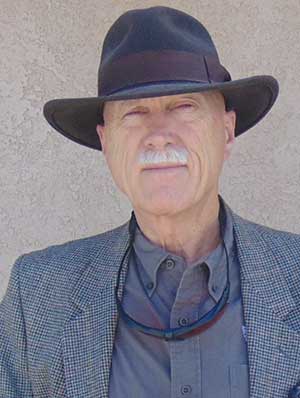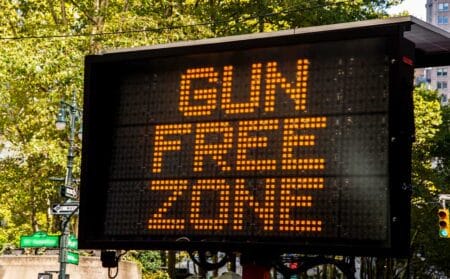By Dean Weingarten

Arizona – -(Ammoland.com)-Arkansas’ campus carry bill HB 1249, has expanded into an enhanced carry permit bill. It has become law, and goes into full effect on 1 January, 2018.
Originally, the bill was to allow staff at institutes of higher learning, who had a concealed carry license, to carry on campus. Staff would have been required to notify the administration that they were carrying.
The higher education lobby worked hard to stop this bill. One of the talking points was that people were not trained enough. It seemed as if Governor Hutchinson might veto the bill. It all backfired on the anti-Second Amendment lobbyists. A much expanded bill was approved in the Senate. Then it was re-approved in the House, and signed by Governor Hutchinson on 22 March.
The Senate amended the bill to require up to 8 hours of additional training to obtain an endorsement on existing concealed carry permits. The training will not need to be renewed. That endorsement allows concealed carry permit holders, and not just university staff, to carry on campus and a number of other former gun free zones. Here is a list from the NRA-ILA:
- Public college and university campuses
- Public buildings other than courtrooms, K-12 schools, and correction facilities
- Any meeting place of the governing body of any governmental entity
- Any meeting of the General Assembly or a committee of the General Assembly
- Any state office
- Any athletic event not related to firearms
- Any portion of an establishment, except a restaurant as defined in § 3-5-1202, licensed to dispense alcoholic beverages for consumption on the premises
- Any portion of an establishment, except a restaurant as defined in § 3-5-1202, where beer or light wine is consumed on the premises
- Inside the passenger terminal of any airport
- Any church or other place of worship
- Any place where a parade or demonstration requiring a permit is being held, and the licensee is a participant in the parade or demonstration
Restaurants that serve alcohol, churches, and private institutes of higher learning may exercise their private property rights to prohibit armed people. They are allowed to do so with the placement of proper signage. The signage must be clearly readable at a distance of 10 feet.
The enhanced carry endorsement will be available in 2018, and will require from four to eight hours of training. The Arkansas State Police are charged with developing the training, which shall:
(i) Not be required to be renewed;
(ii) Consist of a course of up to eight (8) hours;
(iii) Be offered by all training instructors and at
all concealed carry training courses; and(iv) Cost no more than a nominal amount.
The training should be available as of 1 January, 2018.
Chris Cox of the NRA lobbied hard for this bill. At the press conference, he said that the bill is a step in the right direction. From arktimes.com:
“This is an effort to remove roadblocks between law abiding people and their ability to exercise a fundamental right,” Cox said. “We believe that if you have a legal right to be somewhere, and you’re a law-abiding person, you ought to have a legal right to defend yourself. … This is a step in the right direction toward that recognition. Is it a full recognition? No, but it’s a step in the right direction.”
The NRA has come a long way from the days when they merely tried to limit the damage done by bad bills. Many people fought hard for this bill, and the NRA did its part.
Update: A bill is in the Arkansas Legislature to undo part of the reforms achieved above. The NRA is calling for opposition.
©2017 by Dean Weingarten: Permission to share is granted when this notice and link are included.
About Dean Weingarten;
Dean Weingarten has been a peace officer, a military officer, was on the University of Wisconsin Pistol Team for four years, and was first certified to teach firearms safety in 1973. He taught the Arizona concealed carry course for fifteen years until the goal of constitutional carry was attained. He has degrees in meteorology and mining engineering, and recently retired from the Department of Defense after a 30 year career in Army Research, Development, Testing, and Evaluation.






